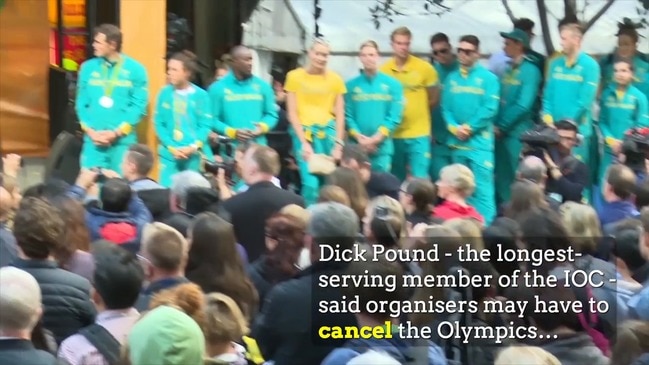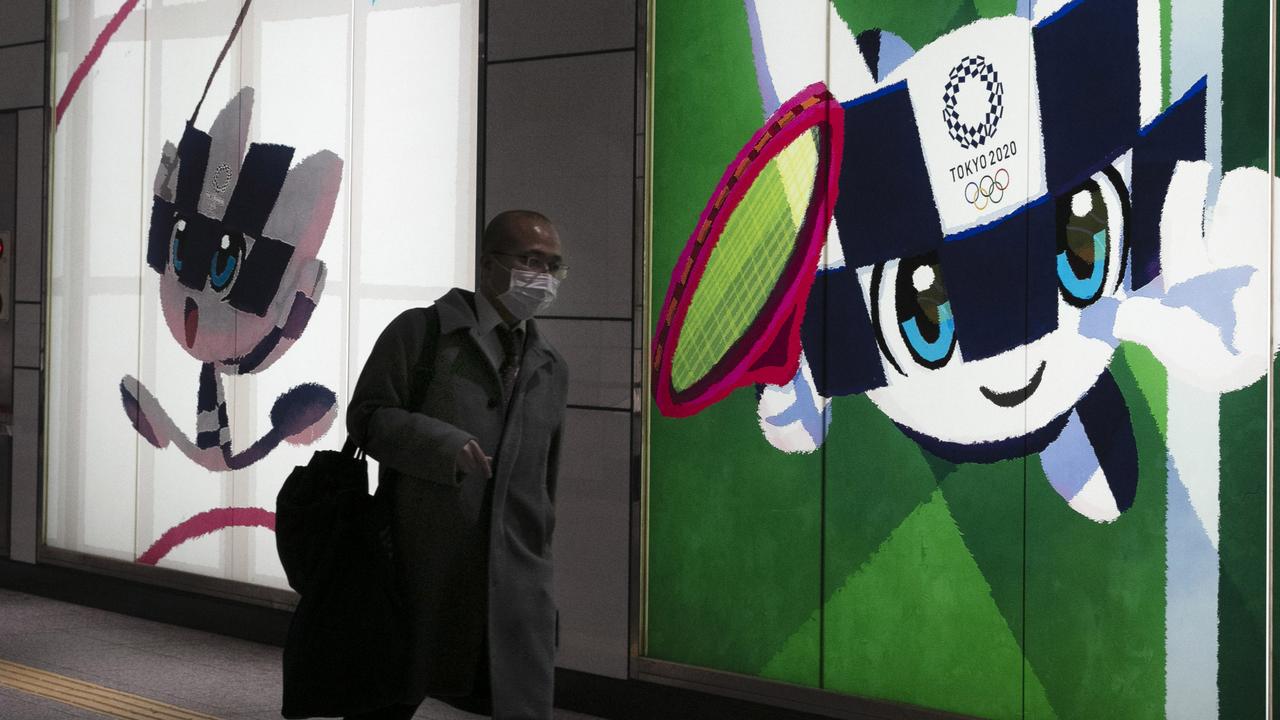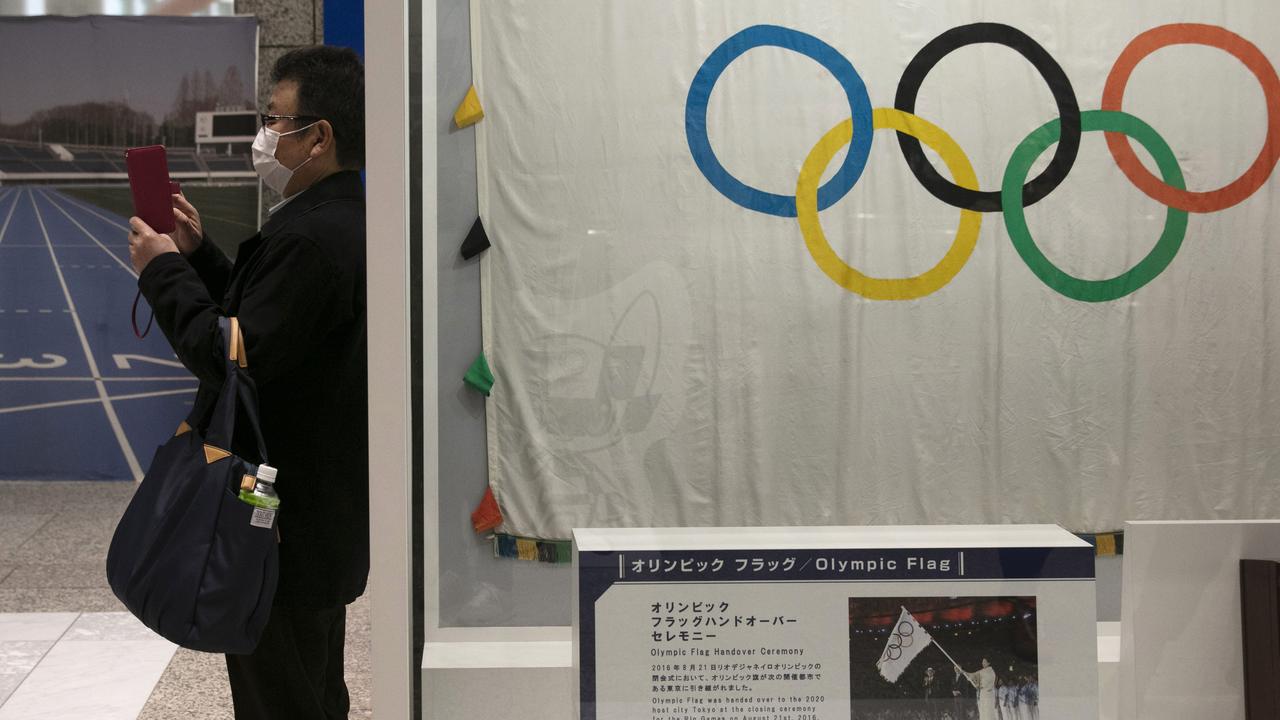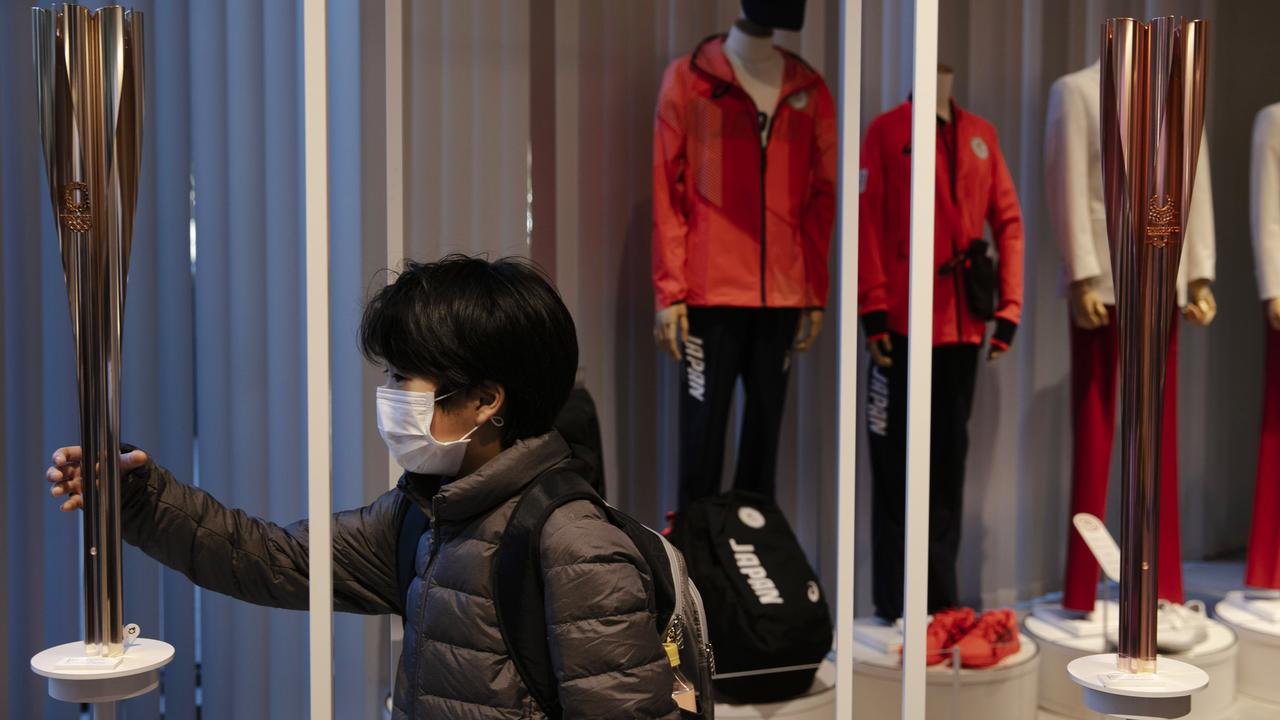Coronavirus could impact the Tokyo 2020 Olympics
The Tokyo Olympics could be brought down by coronavirus in an unprecedented move that hasn’t been seen since WWII.

Several years’ worth of planning and billions of dollars have gone into the Tokyo Olympic Games, which start on Thursday, July 24.
But the deadly coronavirus could bring the 2020 games down, resulting in the first cancellation in 76 years — and the only games to be canned for something other than war.
Coronavirus has begun to impact preparations. Movement of athletes has been limited, qualifying events disrupted, and plans to train volunteers postponed, with Japan holding the second highest rate of COVID-19 infections after China.
The viral outbreak that began in China two months ago has infected more than 80,000 people globally and killed more than 2700.
Now, speculation is mounting as to whether the games will be cancelled altogether.
RELATED: Follow updates on the coronavirus outbreak
RELATED: Stay up to date on all the Olympics news

According to Japanese public broadcaster NHK, Tokyo 2020 organising committee chief executive Toshiro Muto said on February 5 he was “extremely worried that the spread of the infectious disease could throw cold water on the momentum toward the Games”.
While organisers, the International Olympic Committee (IOC) and International Paralymic Committee (IPC) have all insisted cancellation is not being considered, one of the IOC’s most senior members said that the future of the Tokyo Games is largely out of the IOC’s hands and depends on the course the virus takes.
“If it gets to be something like the Spanish flu,” said the committee’s longest-serving member, Dick Pound, referring to the deadly pandemic early in the 20th century that killed millions, “at that level of lethality, then everybody’s got to take their medicine.”
WHAT’S THE LIKELIHOOD OF THE OLYMPICS BEING CANCELLED?
Mr Pound, a former Canadian swimming champion who has been on the IOC since 1978, said that if it proves too dangerous to hold the Olympics in Tokyo this July because of the coronavirus outbreak, organisers are more likely to cancel it altogether than to postpone or move it.
He estimated there is a three, possibly even two, month window to decide the fate of the Tokyo Olympics, meaning a decision could be put off until late May.
“In and around that time, I’d say folks are going to have to ask: ‘Is this under sufficient control that we can be confident about going to Tokyo or not?’” he told The Associated Press.
As the games draw near, “a lot of things start happening,” he said. “You’ve got to start ramping up your security, your food, the Olympic Village, the hotels. The media folks will be in there building their studios.”
Australian Olympic Committee CEO Matt Carroll told Sunrise, “The games are progressing and proceeding. There’s no change to the preparation. There’s no change to the dates.”
WHAT WILL HAPPEN IF THEY ARE?
If the IOC decides the games cannot go forward as scheduled in Tokyo, it’s unlikely that they’ll occur at a later date this year.
“You just don’t postpone something on the size and scale of the Olympics,” Mr Pound said.
“There’s so many moving parts, so many countries and different seasons, and competitive seasons, and television seasons. You can’t just say, ‘We’ll do it in October’.”
Simply moving the Olympics to another city is also unlikely.
“To move the place is difficult because there are few places in the world that could think of gearing up facilities in that short time to put something on,” Mr Pound said.
Dispersing the events over various venues around the world is also not favoured, because that wouldn’t “constitute an Olympic Games. You’d end up with a series of world championships.”
Mr Pound said it was also unlikely they would postpone the Olympics until 2021, then hold them in Tokyo.
“Then you have to ask if you can hold the bubble together for an extra year,” he said. “Then of course you have to fit all of this into the entire international sports schedule.”
RELATED: Three months remain to decide Olympic fate

HOW MUCH WOULD IT COST?
Mr Pound said that the IOC has been building up an “emergency fund” for such circumstances, reported to be about $1 billion. That could fund international sports federations who depend on income from the IOC to operate – and the IOC itself.
Something like coronavirus is “not an insurable risk and it’s not one that can be attributed to one or the other of the parties”, Mr Pound said, adding that there would be a lack of revenue on the Olympic movement side.
Broadcasters would likely have their own insurance that would “mitigate some of the losses”.
About 73 per cent of the IOC’s $5.7 billion income in a four-year Olympic cycle is from broadcast rights.
The Games are estimated to have cost Japan more than $12.6 billion to organise, although a national audit board has said the country is spending twice that amount.
Japanese companies have reportedly also paid more than $3 billion in sponsorship deals to organisers, and hotels in Tokyo are expecting a surge in arrivals.
HAVE THE OLYMPICS BEEN THREATENED LIKE THIS BEFORE?
This isn’t the first time the Olympics has been cancelled, but it has never been due to a public health crisis. The Olympics has been cancelled five times in the past: in 1916, the summer Olympics were called off due to WWI, and in 1940 and 1944, both the summer and winter Olympics were cancelled as a result of WWII.
However, multiple games have still been held despite global health scares in recent years.
“It is important to remember there was a huge clamour for the Rio 2016 Olympic Games to be cancelled because of the zika virus outbreak, but those Games went ahead without any problem,” former public health director for London 2012, Dr Brian McCloskey, told BBC.
“And the Winter Olympics in Vancouver 2010 were during the 2009 pandemic flu season and again they went ahead and created no particular problems either for the country hosting or for other countries around the world.”
Dr McCloskey said there was “good precedent” for the games being held during a public health emergency.

WHAT TRAVELLERS TO TOKYO NEED TO KNOW
As coronavirus continues to spread rapidly, it’s not surprising that people who have booked to travel to Japan for the Olympics in July are feeling apprehensive given the uncertainty, director of Compare Travel Insurance, Natalie Ball, told news.com.au.
“Travellers need to be aware that insurers are unlikely to provide cover if their holiday is not directly affected,” Ms Ball said. “In most cases, travel insurance does not cover for fear of travel or changes of mind. As well, many insurers exclude cover for pandemics and epidemics; events known in the mass media; and anything that you were aware of that may give rise to a claim at the time of purchase.”
She recommended that travellers contact their travel agent or travel service provider if they do want to alter their trip, and to stay up-to-date as the situation continues to evolve.
“Regarding coronavirus, the Department of Foreign Affairs (DFAT) has so far only advised against all travel to China and to parts of South Korea,” Ms Ball said.
If a level-four “do not travel” travel warning was issued for Japan, those going over to the games could be entitled to compensation. Japan’s travel advice warning is currently sitting at level two, which is to “exercise a high degree of caution”.
– with AP



